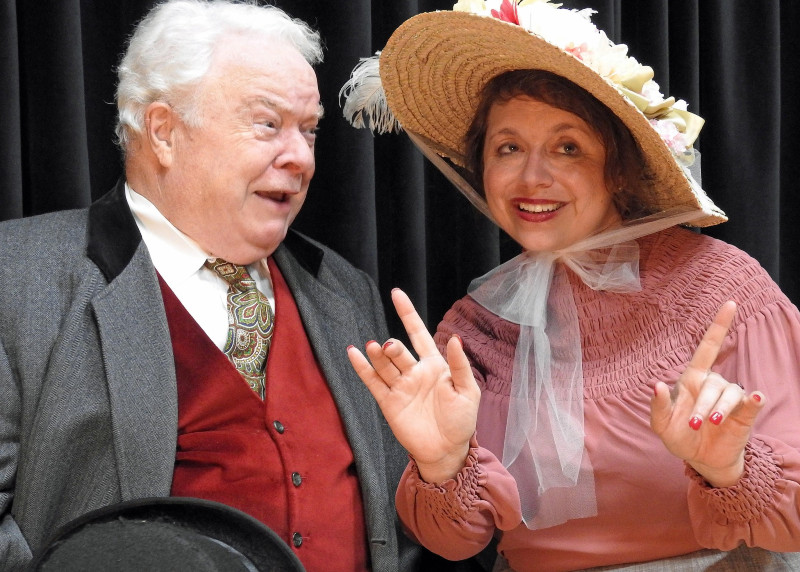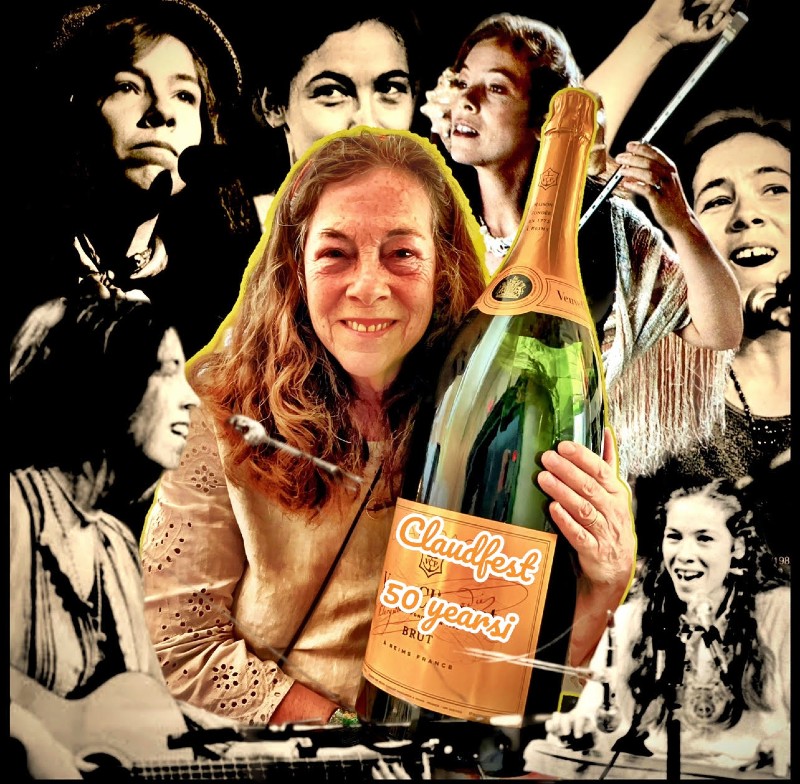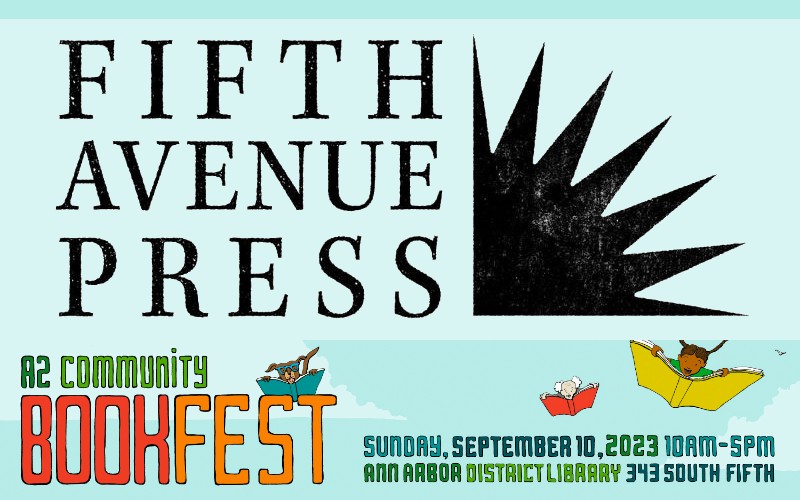Egg Rolls and Racism: Curtis Chin's memoir recalls growing up in his family's Chinese restaurant in the Cass Corridor

Some lessons arrive early in life and stick with you for years.
For author Curtis Chin, the lesson is “Work hard. Be quiet. Obey your elders.” These instructions become a mantra for Chin as he grows up in his family’s restaurant, Chung’s Cantonese Cuisine, in Detroit. The advice gets him through unfamiliar situations.
Chin recalls his experiences in his new memoir, Everything I Learned, I Learned in a Chinese Restaurant. With humor and the kind of introspection that comes with looking back on one’s life, Chin narrates stories from his time in the restaurant and Detroit, as well as his journey to becoming a writer at the University of Michigan. In fact, he worked at Drake's Sandwich Shop as a student. Food, family ties, and Chin’s identity as a gay American-born Chinese serve as throughlines in the book.
The politics and racism of the '80s parallel Chin’s formative years. Chung’s was in the Cass Corridor, a rough area at that time, and its clientele spanned all races and even drew Mayor Coleman Young as a diner. Chin’s father recognized the lessons to be had from talking with customers and brought his sons from the back kitchen into the dining room: “[H]e had really brought us there to discover the outside world, which was sitting right at our tables. All we had to do was listen.”
Cutting the "Edge": Ann Arbor experimental jazz festival returns for its 27th year

Excerpted from "Things to Do: Fall Festivals Spotlight Arts, Culture, and Music in Washtenaw County" [Pulp, August 31, 2023]
Edgefest
October 18-21
Kerrytown Concert House, Ann Arbor
Edgefest returns to Ann Arbor for its 27th year to celebrate all kinds of exploratory jazz and improvisation. The festival features a roster of local and international artists performing at Kerrytown Concert House as well as the everybody-is-invited-to-play Edgefest Parade in the Farmer's Market area and a massive closing-night concert at Bethlehem UCC featuring Tim Berne’s Oceans And, The Forest Percussion Ensemble, and the Michael Malis Ensemble premiering a new composition written specifically for Edgefest 2023.
Other highlights include Ann Arborites Tim Haldeman and Jesse Kramer paying tribute to the late Barbara Kramer, a longtime supporter of local artists and Jesse’s mother, on October 18; Dave Rempis/Joshua Abrams/Tomeka Reid trio on October 19; the Luke Stewart Exposure Quintet, Jason Kao Hwang’s Human Rites Trio, and Alexander Hawkins/Joe McPhee/Tomeka Reid trio, and James B. Lewis/Chad Taylor duo on October 20; the Kaleigh Wilder and Ben Hall quartet with Jaribu Shahid and Ken Vandermark as well as the Tomeka Reid-led Hemphill Stringtet on October 21 honoring the music of Julius Hemphill.
Listen to music from some of the artists at this year's Edgefest:
The Mating Game: Ann Arbor Civic Theatre's "The Matchmaker" Tells a Deeper Story Beyond "Hello, Dolly!"

In 1955, playwright Thornton Wilder’s The Matchmaker became a Broadway hit that ran for 486 performances, toured successfully, became a movie, and was embraced by regional and community theaters across the country. Today, Wilder’s play is rarely performed because of Hello Dolly!
“It’s an American classic and it doesn’t get done because Hello, Dolly! gets done,” said Wendy Wright, the director of the Ann Arbor Civic Theatre’s production of The Matchmaker, which will run October 19-22 at the Arthur Miller Theatre.
Hello, Dolly! is, of course, the hit musical adaptation of Thornton Wilder’s play with music and lyrics by Jerry Herman. The song "Hello, Dolly!" was a mega-hit for Louis Armstrong before the musical was up and running, and the musical gave Carol Channing her greatest role. It, too, became a movie with Barbra Streisand and Walter Matthau.
The Matchmaker has an interesting history. It began as a one-act play in England in 1835 and was expanded into a full-length play by an Austrian playwright in 1842. In 1938, Wilder, a three-time Pulitzer Prize-winning playwright and novelist, created an American version of the story that he called The Merchant of Yonkers. It flopped. But Wilder regrouped, put the focus on Dolly, and created The Matchmaker. He won the Pulitzer for the plays, Our Town and The Skin of Our Teeth, and the novella, The Bridge of San Luis Rey.
Claudfest: Singer-songwriter Claudia Schmidt celebrates 50 years of performing

“Golden anniversary” sounds tacky and “semicentennial” reads incomplete, so what does a musician call her slow-rolling, year-long celebration of 50 years on stage?
For Claudia Schmidt, you just go ahead and portmanteau it—hence Claudfest, and let the bells ring.
Schmidt’s career as a singer-songwriter spans time as well as genre, and she’ll perform selections from her accumulated repertoire on Saturday, October 7, at The Ark when she appears with Rachel Davis.
While she remained active through the COVID-19 shutdowns with a regular series of YouTube concerts, the stage is where Schmidt’s art truly breathes, her rapport with the audience an essential element. Her long-awaited return to A2 brings Claudfest to a city that bore witness to various stages of her musical evolution.
A native of New Baltimore, Michigan, Schmidt pulled the modern equivalent of running away with the circus as soon as she was able, joining a theater group after high school and traveling with them for a year. Another round of seasons given to the University of Michigan didn’t work out, so she relocated to Chicago, where an already vibrant folk music scene welcomed her and inspired a career that led to dozens of records and countless miles.
Ann Arbor would have been a regular stop for anyone playing the Midwestern folk circuit of the 1970s, and Schmidt had no shortage of gigs at the venue she’ll visit this weekend. “I’ve played at all of The Arks,” she said. “I played at the original one on Hill Street, then when it moved to South Main. I’ve followed them all around.”
History From the Margins: UMS is bringing Druid Theatre's productions of Sean O’Casey’s "Dublin Trilogy" to the Power Center

“The whole world’s in a terrible state of chassis!”
—Captain Boyle
Juno and the Paycock
In 1916 a large part of the world was in chaos and crisis. World War I was tearing Europe apart, and in Ireland, the leaders of anti-British forces saw an opportunity to rise against a pre-occupied British government and attempt to finally drive the British government from Ireland.
The deadly events of what is remembered as the Easter Rising were the beginning of a violent eight-year period that would in time free Ireland from British rule but at a high cost. Following the Rising, a war of independence began, ending with a treaty to give Ireland Free State status while still bonded to Britain. That treaty led to a civil war pitting defenders of the treaty against those who believed the treaty was a betrayal.
Playwright Sean O’Casey grew up in the tenements of Dublin. He was a self-taught reader, a laborer, a railway worker, and eventually, a writer with a keen ear for the language of his native city. In the 1920s, he created three plays that covered the period from the Easter Rising to the Civil War. Each play centers on the lives of tenement dwellers in the Irish capital who become caught up in the frenzy and frustration of the long-running domestic war. O’Casey’s plays are both comic and tragic as well as deeply humane.
The University Musical Society (UMS) is presenting the Druid Theatre’s production of O’Casey’s Dublin Trilogy, under the direction of Druid founder and artistic director Garry Hynes, October 18-21. The Galway-based theater company is bringing the play to New York City and Ann Arbor only.
Hynes was artistic director for Druid Theatre from 1975 to 1991 and again from 1995 to the present. From 1991 to 1994, she was the artistic director of the famed Abbey Theatre, where many of O’Casey’s plays premiered.
In a telephone interview, Hynes said O’Casey’s trilogy is about the working people of Dublin living in the tenements.
Fifth Avenue Press launches nine new titles at A2 Community Bookfest

The Ann Arbor District Library's Fifth Avenue Press, which started in 2017, helps local authors produce a print-ready book at no cost—from copyediting to cover design—and the writers retain all rights. In return, the library gets to distribute ebooks to its patrons without paying royalties, but authors can sell their books—print, digital, or audio—in whatever ways they choose and keep all the proceeds.
Fifth Avenue launches nine new publications on Sunday, September 10, with a book-release reception at 1 pm in the lobby of AADL's Downtown location.
The Fifth Avenue Press event is part of the A2 Community Bookfest, which runs from 10 am to 5 pm at AADL Downtown, also on September 10, with a full schedule of renowned authors including J. Ryan Stradal, Sonali Dev, and Stephen Mack Jones.
Four new Fifth Avenue creators answered a questionnaire to help readers understand a bit more about the press process and their journey as authors. Also below is a list and descriptions of all the other Fifth Avenue books available on Sunday; click the titles to visit the books' web pages for more info on each. Many of the authors will be there to do readings and signings, too.
Timothy Monger cleaned out his songwriting notebook for a new album recorded at home

This story originally ran on May 30, 2023. We're featuring it again because Timothy Monger State Park plays an after-hours show at AADL’s Downtown Library on September 9.
Long known as one of the leading talents on the local music scene, Timothy Monger has always had a distinctive songwriting voice. The names of two of the bands he’s led—the late, lamented Great Lakes Myth Society and the current Timothy Monger State Park—give some clues to the subjects of his songs, which often look to the outdoors, history, and other rootsy pursuits.
Those sorts of themes show up again on Monger’s new album, his fourth as a solo artist, which is simply titled Timothy Monger. Yet as he always manages to do, he finds fresh perspectives and new approaches, and the result stands out from his previous body of work.
The album is literally the result of Monger returning to his notebooks and fleshing out ideas found there, recording the songs entirely at his home in a style he describes as “homespun psych-folk.” A few of the songs are snippets of less than 30 seconds, but that’s all they require to tell their particular story. Others bring characters to life, such as a fictional “Cub Reporter” or the real-life theremin virtuoso Clara Rockmore, who Monger memorably describes as “the one who finally gave the ghosts a voice.”
“Shadow of the Weka” is a charming instrumental with Celtic overtones. And there are several nods to Michigan, including “Cranberry Bog,” “Luna Pier,” and “Sa-Wa-Quato.”
Monger recently answered a few questions about the new recording, which comes out on June 2, the same day as his album release show at The Ark.
"Books Across America" documentary visits 50 places in 50 days, including Ann Arbor

Literati Bookstore has a relatively small physical footprint. But what the space lacks in size, it makes up for in reputation and has become one of the most beloved independent bookstores in the literature world.
That's one reason why writer and filmmaker Mason Engel picked Literati in Ann Arbor to represent the state of Michigan in his upcoming film, Books Across America.
Scheduled to come out in 2024, the documentary tracks Engel—a self-described "struggling writer"—traveling to 50 states in 50 days to interview 50 authors about 50 books. His Literati / Ann Arbor stop includes an interview with author and University of Michigan professor Peter Ho Davies.
Some of the other authors who appear in Books Across America include James Patterson, David Baldacci, and Joyce Carol Oates.
The press release calls the film a "real-life version of the Great American novel," and says the "characters are all obsessed with books, and they’re all searching for a happily ever after."
In an interview with The Atlanta Journal-Constitution, Engel explained the reason why he decided to make a film rather than write about his experience: "[T]he film is to introduce or to depict reading to people who typically don’t read in a way that makes them want to pick up a book. I’m trying to meet people, my target audience, where they are—which is not in a bookstore, but on Netflix, on public television, on anywhere you find movies and shows."
Books Across America is wrapping up its Kickstarter campaign soon, with the film scheduled for release in 2024. After costs are covered, the film's proceeds will benefit Read Across America.
Watch the trailer below:
"Ghost" Stories: Jonathan Edwards explores a sparser sound on his lyrical new solo album

Jonathan Edwards recorded, produced, and performed the 13 songs on Wild Ghosts almost entirely by himself, playing everything from bass and drums to synthesizers and Wurlitzer organ.
But he could have just as easily performed the beautiful songs on Wild Ghost solely with his guitar, the instrument at the heart of the album, with Edwards displaying excellent fingerstyle playing throughout the record.
"Wild Ghosts is definitely more of a singer-songwriter album than anything I have done in the past and is something I have wanted to do for a long time," said Edwards, who studied music at Indiana University and Eastern Michigan. “Most of the songs on Wild Ghosts can be distilled down to more traditional folk tune-type influences, although there are still some more elaborate and dense arrangements with songs like ‘Paper Birds’ and ‘Mask of Bees.' Simplification is an art I am still learning."
I talked with Edwards about his musical upbringing, his influences, his writing process, Wild Ghosts, and more.
Heading East: Grand Rapids Outlaw-Country Band The Bootstrap Boys Perform July 22 at Saline's Acoustic Routes Concert Series

The Bootstrap Boys are driving their outlaw-country anthems eastward to Saline later this month.
The Grand Rapids quartet plans to unpack rowdy tales from their five-album catalog during a July 22 Acoustic Routes show at Stony Lake Brewing Co.
The show serves as The Bootstrap Boys’ debut appearance at the decade-old Saline concert series. It’s also the only Washtenaw County stop on a current summer tour in support of their latest album, Hungry & Sober.
Throughout the album, vocalist-songwriter Jake Stilson (Big Jake Bootstrap), guitarist Nick Alexander (Nicky Bootstrap), bassist Jonny Bruha (Jonny “Bubba” Bootstrap), and drummer Jeff Knol (Jeff Bootstrap), share “cheerily nihilistic road tunes” and “sincere ruminations on family and queer identity” alongside hard-hitting, country-rock instrumentation.
“This album has more honest poetry to accompany the storytelling that’s always a part of my work,” notes Stilson on the band’s website, which credits Willie Nelson, Waylon Jennings, and Bob Wills among the band’s biggest influences. “I edited myself a lot less.”


































